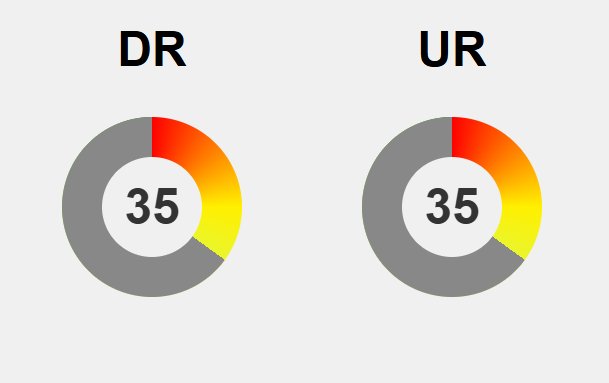Are you passionate enough to turn your hobby into a sustainable business from the comfort of your home? Starting a home-based enterprise offers unmatched flexibility and personal fulfillment, but transforming passion into profit requires strategic planning, market understanding, and adaptability. Thanks to digital technology and social media, launching a small business has become more accessible, yet success hinges on knowing your niche, managing costs, and building a loyal customer base. Challenges like market saturation, time boundaries, and legal hurdles are inevitable—but with creative solutions and persistence, they become opportunities for growth. This guide explores how to identify profitable ideas, manage finances wisely, implement effective strategies, and navigate obstacles, all while maintaining the balance between passion and profitability. Could your home be the perfect launchpad for a thriving, long-term business, or is fear of failure holding you back? The journey begins with a well-planned step—are you ready to take it?
Transform Your Life with a Home-Based Business: Embrace Flexibility and Passion
Starting a home-based business isn’t just a trend—it’s a lifestyle shift that appeals to many looking for more control over their careers and daily routines. Working from your own space, whether it’s a dedicated office or a cozy corner, offers unmatched flexibility and convenience. It’s especially attractive for those juggling family commitments, studies, or multiple responsibilities, making it possible to turn passions into income streams without the need for a traditional storefront.
Thanks to rapid advances in technology and the explosion of social media, launching a home business has become more accessible than ever. Whether it’s freelancing, consulting, crafting, tutoring, or selling products online, there’s a wide range of opportunities suited for different skills and interests. While the appeal is clear, turning a passion into a profitable venture requires more than enthusiasm—it demands strategic planning, market understanding, and a willingness to adapt.
Many entrepreneurs find that working from home allows them to align their work with their personal values and lifestyle goals. It’s about creating a sustainable enterprise that can grow over time, not just making extra money on the side. Success depends on identifying a viable business idea, researching your market, and building a solid foundation that can support long-term growth.
Starting from home also means you can avoid many overhead costs associated with brick-and-mortar businesses. This lower barrier to entry makes entrepreneurship more approachable, especially for first-time business owners. With clear goals, disciplined execution, and a focus on quality, a home-based business can become a reliable source of income and personal fulfillment.
Ultimately, this approach offers a chance to design a career that fits your life, rather than the other way around. It’s about transforming passions into profit while enjoying the freedom and flexibility that come with working on your own terms. With the right mindset and a bit of planning, your home can be the launchpad for your entrepreneurial journey.
The Rise of Home Businesses: A New Era of Flexibility and Global Reach
The idea of working from home isn’t new, but recent years have truly reshaped how we think about remote work and small businesses. What once was seen as a side gig or hobby has now become a legitimate pathway to earning a living, thanks to rapid advancements in technology. Today’s entrepreneurs can run their ventures from cozy corners or dedicated home offices, reaching audiences around the world without the overhead costs of a physical storefront.
This shift reflects a broader change in priorities—many people now value flexibility and work-life balance over traditional office routines and long commutes. As a result, turning hobbies into income streams has become more accessible, with online platforms and social media lowering barriers for small-scale, digital-first businesses. Entrepreneurs can test ideas quickly, adapt, and grow with minimal initial investment.
Historically, small home businesses often revolved around crafts, farming, or local trades. Today, the digital landscape has expanded those possibilities. You can sell handmade goods online, offer consulting services, or create digital content—all from your living room. This global reach opens doors for small businesses to scale faster and more efficiently than ever before.
The rise of remote work has also fostered a vibrant startup culture. Many new ventures launch with little capital, relying heavily on social media and online marketplaces for marketing. This environment makes it easier for anyone with a passion and a plan to turn a side hustle into a sustainable career.
Understanding this evolving landscape helps clarify why starting a home-based business is more practical and promising than ever. With the right approach, you can leverage technology and your skills to build a profitable enterprise from the comfort of your home, turning your passion into a thriving livelihood.
Unlock Profitability: Key Factors Driving Your Home Business Success
Understanding what drives profitability is crucial for transforming a home-based venture from a side project into a sustainable business. The first step is knowing your target market intimately—who your customers are, what they need, and how much they’re willing to pay. Without this clarity, you risk creating products or services that don’t resonate or generate enough revenue. Focusing on a niche allows you to develop expertise, differentiate yourself, and build customer loyalty, making your marketing efforts more effective and less costly.
Managing expenses carefully is just as important as offering the right product. Keeping a close eye on costs ensures healthy profit margins. This means balancing overheads like supplies, utilities, and marketing against your income. Smart budgeting and pricing strategies help you stay profitable without sacrificing quality or customer value. Regularly reviewing your financial data reveals which initiatives are working and where adjustments are needed, keeping your business agile.
Flexibility in your approach can set you apart in a competitive landscape. Staying aware of industry trends and shifting customer preferences allows you to adapt your offerings proactively. This agility can open new revenue streams and prevent stagnation. Operational elements like inventory management, customer service, and pricing are the backbone of profitability. Streamlining these processes reduces waste and improves efficiency, directly boosting your bottom line.
Understanding the competitive landscape is also vital. Conducting periodic market analyses uncovers gaps and opportunities, helping you refine your unique selling points. Positioning yourself effectively ensures you don’t just compete — you stand out. Developing a clear financial plan, with regular performance reviews, guides your decision-making and keeps your business on track for growth.
Finally, long-term success depends on your ability to adapt and learn. The most profitable home businesses are those that stay responsive to change, continually optimizing their strategies. When you combine market insight, disciplined expense management, and operational efficiency, your passion can become a reliable, profitable enterprise that supports your lifestyle and dreams.
By staying informed about industry best practices and innovative approaches, you can continue to refine your strategies for sustained growth. For additional insights on building a profitable home business, consider exploring how to maximize your online presence through effective digital marketing strategies, available at this resource.
Turning Dreams into Reality: Practical Steps to Monetize Your Passions
Turning your passion into profit starts with a clear understanding of your niche and your target audience. Knowing what they need, how you can serve them, and what makes your offering unique helps you craft a focused plan. Use social media and online platforms to showcase your products or services, build a community, and engage potential customers. Authentic interaction and consistent branding are key to turning followers into loyal clients.
Begin small by leveraging your existing network and gradually expanding. For example, a passionate baker can start by offering treats to friends and family, then use social media to reach a wider audience. Sharing your creations online and accepting custom orders allows steady growth without heavy upfront costs. Similarly, a craftsperson might sell handmade goods at local markets before moving online. Consistency and genuine engagement turn hobbies into sustainable income streams.
Effective implementation depends on managing your time and resources wisely. Set aside dedicated hours for your business activities, and create routines to stay organized. Use scheduling tools or project management apps to keep track of tasks and deadlines. Regularly review your progress through sales data, website analytics, or customer feedback. Adjust your strategies accordingly—whether refining your marketing or expanding your product line—to maximize results.
Digital tools can streamline your operations, making it easier to reach customers and manage your business efficiently. Platforms like Etsy, Shopify, or social media channels connect you with audiences without the need for large advertising budgets. Accounting software such as QuickBooks or Wave helps keep your finances transparent and stress-free, simplifying tax season and profitability assessments. Online tutorials and resources are readily available to help you learn marketing, website management, and legal essentials.
Stay adaptable and open to learning as your business grows. Listen to customer feedback and keep an eye on industry trends to identify new opportunities. Experiment with different approaches, and don’t be afraid to pivot when needed. Building a successful home business isn’t a one-time effort but an ongoing process of growth, innovation, and passion-driven persistence.
By focusing on these practical steps, you turn your passion into a thriving enterprise. Consistent effort, smart use of tools, and a willingness to adapt lay the foundation for a profitable, fulfilling home-based business that aligns with your lifestyle and dreams.
Smart Finances, Solid Growth: Budgeting and Resources for Home Entrepreneurs
Managing your finances is fundamental to turning your passion into a profitable home business. Start by creating a detailed budget that covers all initial costs, from equipment and supplies to licensing and setup fees. Knowing these expenses upfront helps you plan realistically and avoid surprises once you’re underway. Tracking ongoing expenses like marketing, internet, utilities, and inventory ensures you stay profitable over time.
Funding your venture often begins with personal savings, which keeps you free from debt and provides immediate capital. If additional funds are needed, consider options like small business loans, grants, or crowdfunding. Having a clear financial plan makes managing cash flow smoother and keeps your business on solid ground. Use simple tools like spreadsheets or accounting software to monitor what you spend and earn, providing visibility into where costs can be cut or investments can pay off.
Controlling expenses means making smart choices—negotiating with suppliers, leveraging free or low-cost marketing tools, and automating routine tasks to save time and money. Every dollar saved or wisely invested boosts your bottom line. Regular reviews of your financial data reveal which strategies are effective and where adjustments are necessary, helping you stay adaptable.
Discipline in financial management creates a buffer against setbacks and opens doors for growth. Clear records and a disciplined approach give you confidence, enabling informed decisions that support long-term sustainability. When you treat your budget as a living document, you ensure your passion remains profitable and your business remains resilient.
Resourcefulness is key. Use online resources, tutorials, and free tools to maximize your budget and streamline operations. From marketing to bookkeeping, many affordable solutions exist that can help you run efficiently without overspending. This strategic approach makes it easier to focus on what matters most—building your dream business.
Ultimately, smart financial planning turns your passion into a sustainable venture. It keeps your business steady, supports growth, and allows you to enjoy the freedom that comes with working from home. With a solid resource strategy, you’re better equipped to adapt, innovate, and thrive in the long run.
From Plan to Profit: Effective Strategies for Business Implementation
Turning your business plan into reality starts with breaking it down into clear, actionable steps. Focus on setting up your workspace, whether it’s a dedicated room or a cozy corner, and establish routines that keep you disciplined. Creating checklists or using project management tools helps you stay organized and ensures no task gets overlooked. Consistency is key—show up every day with purpose and follow your schedule to build momentum.
Monitor your progress regularly by tracking key metrics like sales figures, website visits, or customer feedback. This data reveals what strategies work best and where adjustments are needed. If you notice certain efforts aren’t delivering results, be ready to pivot—refining your marketing approach, exploring new channels, or tweaking your offerings. Staying flexible allows your business to adapt and grow, rather than stagnate.
Staying focused and persistent builds credibility over time. Small, steady efforts—like posting on social media, following up with clients, or refining your product—accumulate into significant progress. Treat your daily routines as building blocks for long-term success, not just chores to check off. Your ability to consistently execute your plan will turn initial ideas into tangible results.
Leverage digital tools to streamline your operations. Platforms like Shopify, Etsy, or social media channels make it easy to reach audiences without hefty advertising expenses. Accounting software such as QuickBooks or Wave simplifies financial management, helping you keep track of income and expenses effortlessly. Online tutorials and communities can further support your learning, making it easier to improve your skills and stay compliant.
Regularly review your performance to identify opportunities for improvement. Customer feedback, sales trends, and website analytics guide your decisions and help you refine your approach. Don’t hesitate to experiment with new ideas or shift your focus if something isn’t working. This proactive mindset keeps your business resilient and positioned for growth.
Maintain a proactive attitude by planning ahead and setting priorities. Break larger goals into smaller, manageable tasks that you can accomplish daily or weekly. This approach prevents overwhelm and keeps you motivated. Celebrate small wins to reinforce your momentum, making the journey enjoyable and sustainable.
Remember, executing your business plan isn’t a one-time effort; it’s an ongoing process of learning, adjusting, and pushing forward. With discipline, adaptability, and a focus on practical steps, your passion transforms into a thriving, profitable home enterprise. Each deliberate action adds up, bringing your vision closer to reality and ensuring your home-based business remains resilient and rewarding in the long run.
Overcoming Obstacles: Navigate Challenges and Thrive in Your Home Business
Starting a home-based business comes with its share of hurdles, but knowing how to tackle them makes all the difference. Market saturation is a common challenge; if many competitors target the same audience, standing out can seem daunting. To overcome this, focus on carving out a niche or emphasizing what makes your offering unique. Strong branding and targeted messaging help attract the right customers without wasting resources on broad, ineffective campaigns.
Time management is another tricky area. When your home doubles as your office, boundaries can blur, leading to burnout. Creating a dedicated workspace and setting clear work hours helps maintain balance and keeps your productivity on track. Communicating these boundaries to family and friends ensures your focus stays intact and work doesn’t spill into personal time.
Legal and financial concerns often feel overwhelming, but they’re manageable with some planning. Research local licensing, permits, and tax obligations early, and consider consulting online resources or professionals to stay compliant. Keeping detailed records of your expenses and income simplifies tax time and helps you assess profitability. Regularly reviewing your finances allows you to spot issues before they become serious and adjust your strategies accordingly.
Customer acquisition and retention pose ongoing challenges, but they also open avenues for differentiation. Providing excellent service and actively engaging your audience builds loyalty. If sales slow or customer feedback highlights issues, be ready to pivot—refining your offerings or exploring new marketing channels. Staying adaptable keeps your business resilient and positioned for growth.
Expect setbacks along the way—they’re part of the process. The key is to troubleshoot issues quickly and learn from them. Flexibility and persistence turn obstacles into opportunities for innovation. Building resilience through strategic problem-solving ensures your home business can withstand market fluctuations and evolving customer needs.
By addressing these common hurdles proactively, you create a foundation for long-term success. Each challenge offers valuable lessons that sharpen your skills and deepen your understanding of your market. With focus, adaptability, and a problem-solving mindset, you can steer your passion into a sustainable, profitable home enterprise that thrives despite setbacks.




